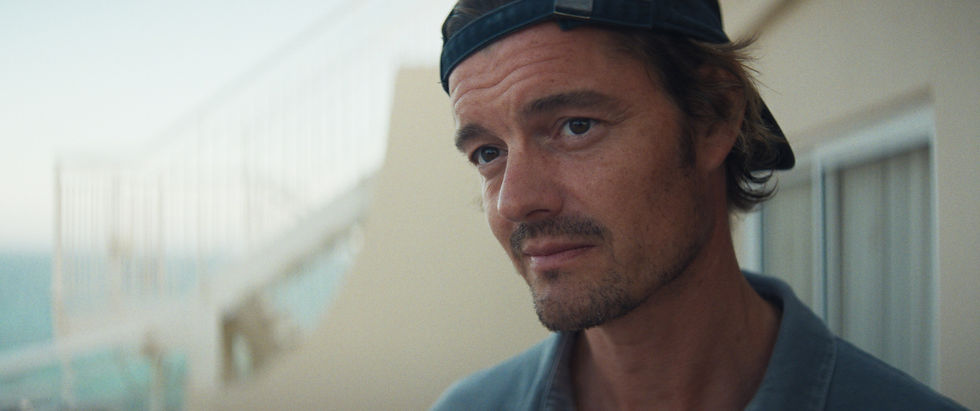NAME ME LAWAND
- Lara Griffith

- Jul 4, 2023
- 3 min read
WRITTEN AND DIRECTED BY EDWARD LOVELACE
UK / 2022 / 91 MINS / PG
ENGLISH, KURDISH, BRITISH SIGN LANGUAGE, SUBTITLES
FEATURING LAWAND HAMAD AMIN AND RAWA HAMAD AMIN

REVIEW by LARA GRIFFITH
Name Me Lawand, a 2023 Hot Docs prize-winner, tells the story of a deaf Kurdish boy’s epic quest for language, friendship and belonging. Writer and director Edward Lovelace’s distinctive style immerses the viewer in Lawand’s thoughts and senses in this poetic and illuminating documentary.
Lawand, deaf since birth, grew up without language in Iraq. In the words of his father, it seemed that for him there would be no light or proper chance of life if they remained. The family left home in search of help for their son, enduring hazard, uncertainty and a year in a refugee camp. Finally, their journey – and the help of the founder of Deaf Kidz International – brought them to Derby, where Lawand joined the Royal School for the Deaf. Here, his parents were told that his trauma and isolation were so great that he might never communicate.
Working with an inspirational support teacher and other staff, Lawand masters British Sign Language (BSL). This, his chosen form of expression, sets him free. But as he begins to connect with the world, everything that Lawand and his family have fought for is put at risk when they face the threat of deportation.
The film reaps the benefits of a meticulous and inclusive process. Lovelace learned BSL and spent a year with the family before filming began. He collaborated with many deaf crew members and a Kurdish producer. To guide sound decisions, parts of the audio were test recorded through a cochlear implant like the one used by Lawand.
Name Me Lawand captivates through the charisma of its characters and a skilful blend of techniques. Audio effects, archive footage and reconstructed scenes combine with narration from Rawa, Lawand’s elder brother, and quiet observation, often in close-up. This pulls the viewer into Lawand’s world to feel the desolation of his early years and his struggle to speak. A surging score, aerial shots and abstract imagery capture his joy and the boundless scope of the brothers’ imagination. The documentary is cinematic in the composition of its shots and the way in which it weaves together storylines to create suspense.
Twice now – here and with his 2014 documentary The Possibilities are Endless (co-directed with James Hall), which portrays musician Edwyn Collins’ recovery from a stroke – Lovelace has offered audiences the chance to travel to frontiers of human experience with individuals claiming or recapturing their sense of self and agency.
Many themes emerge from this intimate portrait of a young life: brotherhood, community, family, identity and difference, the power that language brings, and the fight for the 2022 BSL Act. The film carries its wider truths lightly, with sublime and hilarious scenes as Lawand forms a diverse group of friends and partners in life and football.
There are moments at which the score, although beautiful, can become intrusive, as if the audience is being directed in what to feel. The reconstructions, while crucial to understanding the terror of Lawand’s journey, have limitations. Such issues, however, in no way overshadow a remarkable story. This is a deeply affecting film with real emotional power. It offers hope and humanity in these troubling times.
@LovelaceEdward
@BFI


